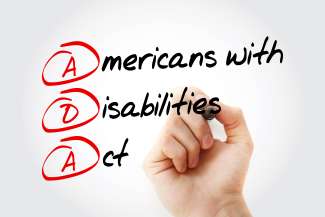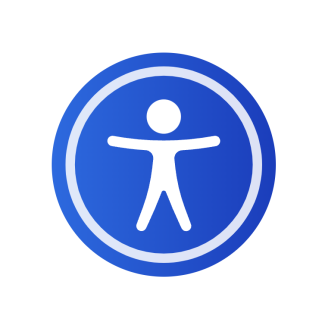Jump To:
Website Design
The City of Raleigh, North Carolina is committed to making this website compliant with the Americans with Disabilities Act. The City maintains its Web site to allow common accessibility, using standards set forth in Worldwide Web Consortium (W3C).
We welcome comments on how to improve the site's accessibility for users with disabilities, and you can email your comments to Jim Alberque. Your input is important to help us continue to meet everyone's needs better.
Please read about what accessibility measures are employed on our website.
- All images and hyperlinks, where appropriate, have an alternative text attribute. This means when an image or hyperlink is conveying important information its content is described with an alternative text.
- We have a ‘Text Only' option located at the bottom right of the site to allow general accessibility using standards set forth by the Worldwide Web Consortium (W3C).
Website Accessibility Tool
The UserWay widget is available on every page of our website, offering features like:
- Screen reader compatibility
-
Keyboard navigation
Adjustable text sizes
Dyslexia-friendly fonts
Color contrast options
Language translation
And more!
Just click the person icon on any page to access these tools and tailor your browsing experience to your needs.
We’re committed to ensuring our website is welcoming and easy to use for all members of our community. Try it today!
Notice Under the Americans with Disabilities Act
Employment:
City of Raleigh does not discriminate on the basis of disability in its hiring or employment practices and complies with all regulations promulgated by the U.S. Equal Employment Opportunity Commission under title I of the ADA.
Effective Communication:
City of Raleigh will generally, upon request, provide appropriate aids and services leading to effective communication for qualified persons with disabilities so they can participate equally in the City of Raleigh's programs, services, and activities, including qualified sign language interpreters, documents in Braille, and other ways of making information and communications accessible to people who have speech, hearing, or vision impairments.
Modifications to Policies and Procedures:
City of Raleigh will make all reasonable modifications to policies and programs to ensure that people with disabilities have an equal opportunity to enjoy all of its programs, services, and activities. For example, individuals with service animals are welcomed in City of Raleigh offices, even where pets are generally prohibited.
Anyone who requires an auxiliary aid or service for effective communication, or a modification of policies or procedures to participate in a program, service, or activity of City of Raleigh, should contact the ADA Coordinator as soon as possible but no later than 48 hours before the scheduled event.
The ADA does not require the City of Raleigh to take any action that would fundamentally alter the nature of its programs or services, or impose an undue financial or administrative burden.
Complaints that a program, service, or activity of City of Raleigh is not accessible to persons with disabilities should be directed to the ADA Coordinator.
City of Raleigh will not place a surcharge on a particular individual with a disability or any group of individuals with disabilities to cover the cost of providing auxiliary aids/services or reasonable modifications of policy, such as retrieving items from locations that are open to the public but are not accessible to persons who use wheelchairs.
Grievance Procedure under The Americans with Disabilities Act
This Grievance Procedure is established to meet the requirements of the Americans with Disabilities Act of 1990 ("ADA"). It may be used by anyone who wishes to file a complaint alleging discrimination on the basis of disability in the provision of services, activities, programs, or benefits by the City of Raleigh. The City's Personnel Policy governs employment-related complaints of disability discrimination.
The complaint should be in writing and contain information about the alleged discrimination such as name, address, phone number of complainant and location, date, and description of the problem. Alternative means of filing complaints, such as personal interviews or a tape recording of the complaint, will be made available for persons with disabilities upon request.
The complaint should be submitted by the grievant and/or his/her designee as soon as possible but no later than 60 calendar days after the alleged violation to:
Christina Bauman, ADA Coordinator
christina.bauman@raleighnc.gov
919-996-5737
PO Box 590
Raleigh, NC 27602
Within 15 calendar days after receipt of the complaint, the ADA Coordinator or designee will meet with the complainant to discuss the complaint and the possible resolutions. Within 15 calendar days of the meeting, ADA Coordinator or designee will respond in writing, and where appropriate, in a format accessible to the complainant, such as large print, Braille, or audio tape. The response will explain the position of the City of Raleigh and offer options for substantive resolution of the complaint.
If the response by the ADA Coordinator or designee does not satisfactorily resolve the issue, the complainant and/or his/her designee may appeal the decision within 15 calendar days after receipt of the response to the City Manager or designee.
Within 15 calendar days after receipt of the appeal, the City Manager or designee will meet with the complainant to discuss the complaint and possible resolutions. Within 15 calendar days after the meeting, the City Manager or designee will respond in writing, and, where appropriate, in a format accessible to the complainant, with a final resolution of the complaint.
All written complaints received by the ADA Coordinator or designee, appeals to the City Manager or designee, and responses from these two offices will be retained by the City of Raleigh for at least three years.




